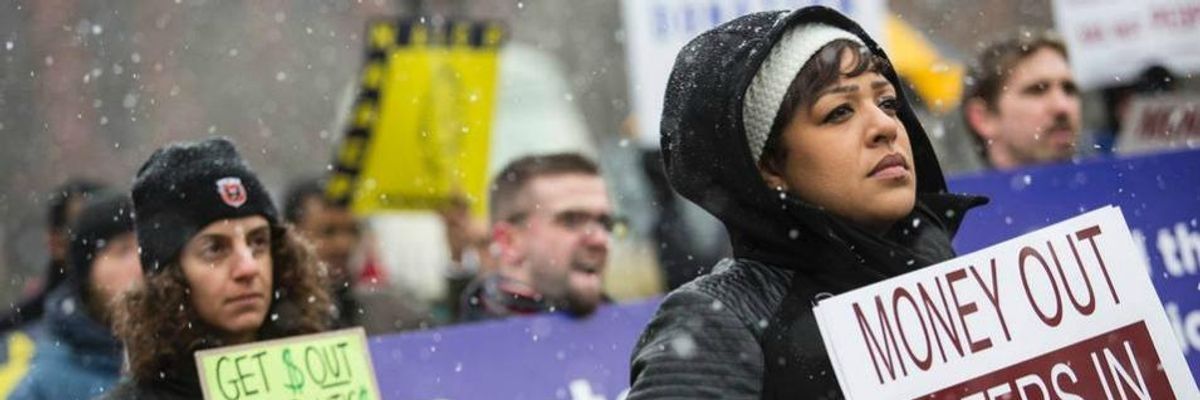Six years ago today, the Supreme Court issued its ruling in Citizens United vs. FEC. It is not a happy anniversary. I remember waiting for the ruling and opening it up on my computer: when I finally read it, I didn't want to believe that the Court had gone as far as it had and been so careless with our democracy.
Citizens United was bad history, bad logic, bad law. It was a major overreach on the part of the Court (the issue hadn't even been raised initially). In his majority decision that day, Justice Kennedy allowed billionaires and big corporations to spend limitless amounts of money to influence politicians. His description of politics was pretty out of touch. Basically, the Court held that unless there is an explicit, open deal -- "here's $5 million for a vote against banking reform" -- there's no corruption. Nobody with any common sense thinks that huge corporate expenditures don't corrupt politics, but the Court left common sense behind that day.
One good thing came out of it: it has led to an extraordinary, community-by-community grassroots effort to reclaim our democracy.
I've been fighting Citizens United since before it existed. (Justice Stevens even quoted my work on corruption in his scathing, powerful dissent.) But on this anniversary, I want to return the focus to the most basic patriotic demand: elected officials that serve the public interest, not private interests.
Our country was founded on a radical but profound belief in the possibility of people coming together for the public good and governing themselves. As our framers understood, in order to fulfill that promise, we need structures that allow public servants to actually serve the public. That includes both:
- Overturning Citizens United, or amending the Constitution to reflect the real intent of our founders--corporations aren't people and SuperPAC money isn't protected speech.
- Replacing privately funded elections with publicly funded elections. Publicly funded elections have opened up politics and freed candidates to serve the public in New York City, Connecticut, Maine and cities around the country. But for real change we need the entire country to switch.
I can see a future where this happens. Just because it is hard -- and yes, its hard! -- doesn't mean its impossible. In the last year, the grassroots, town-by-town, city-by-city effort has been amazing.
As we mark six years since the Supreme Court's decision, let's remember this vision as we redouble our commitment to working together toward a government that is truly of, by, and for the people.

